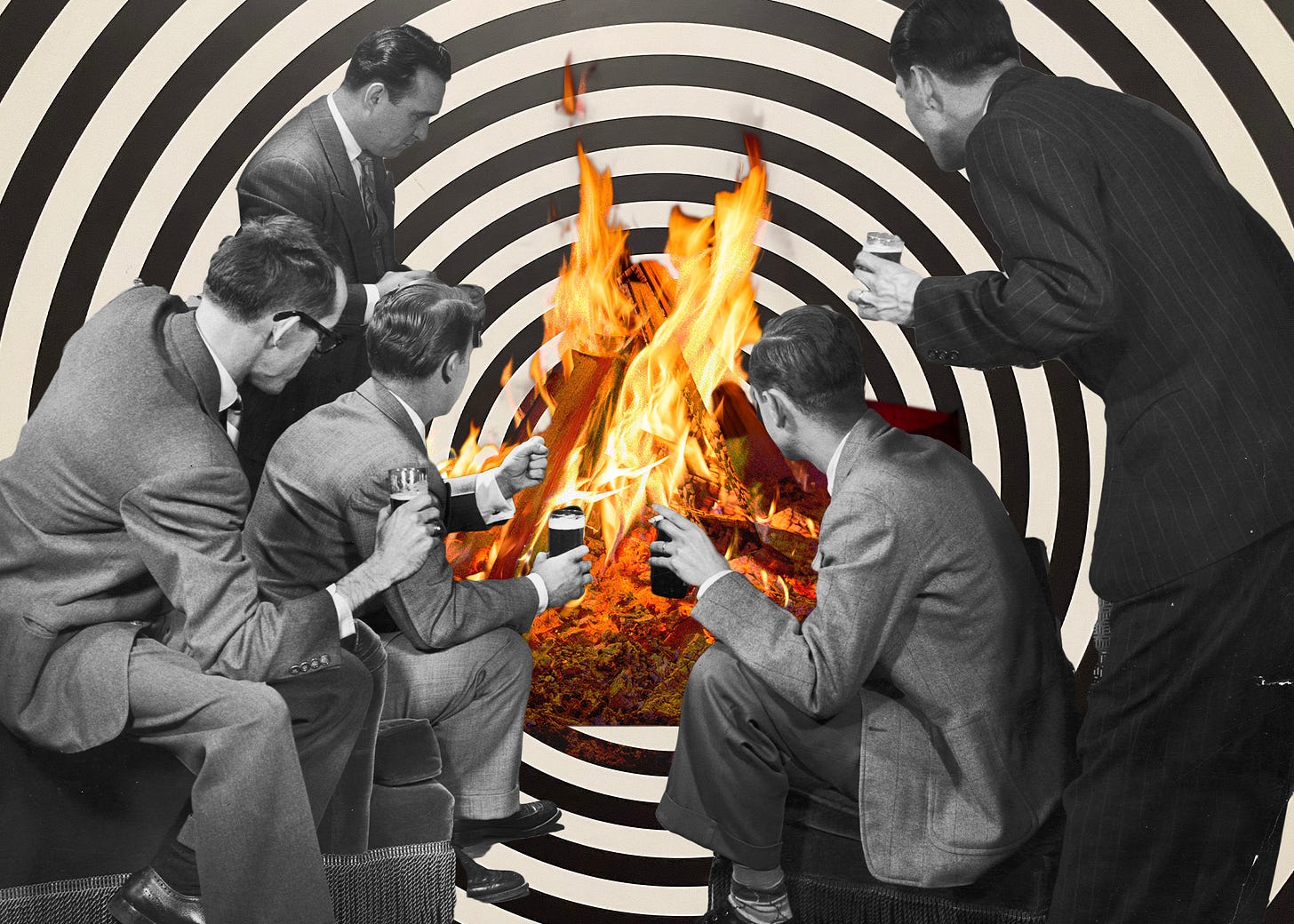American Folklore
The internet was supposed to spread information and elevate our understanding of the world. Instead it turned us into a primitive people, reliant on folk stories.
I know we should be talking about the possibility of a government shutdown and Elon Musk’s takeover of the Trump administration, but today I want to zoom out to 30,000 feet and look at how technology has influenced our politics in a totally unexpected way.
The dream of the internet was that it would create a high-information, high-trust society. Technology was supposed to make facts and primary sources immediately available to everyone, thereby ushering in an age of rationality and data-driven decision-making.
If you lived in Bumblefuck, Missouri, the internet meant that you were no longer beholden to the limited stream of news provided by your local paper, three broadcast networks, and assorted cable news players. You’d be able to see the information with your own eyes.
A Senate committee issued an important report? A scientific journal published a landmark study? You’d be able to sit in your living room and pull up the actual study or report and read it yourself, from soup to nuts. Your local newspaper might run a 600-word story about a speech some politician gave. The internet meant that you could watch the entire speech, unfiltered, and draw your own conclusions.
Instead of relying on a small number of information gatekeepers, you now had direct access to data. So you no longer had to rely on what the media told you about, say, crime. You could pull up the FBI crime stats and look at the numbers with your own eyes.
But it hasn’t worked out that way.
The internet has made all of that data readily available to people. And it turns out that often there is too much of it and it is too complicated for normal non-experts to understand. But the bigger problem has been the sheer volume of noise that the internet gave rise to. The noise overwhelmed the information, accelerating the decline in trust in institutions. The net effect was to make the populace as a whole less tethered to facts and data—and more animated by folk stories and something like an oral tradition.
We’re going to delve deep into all of this.
But first I want you to close your eyes and imagine being Mike Johnson.
You’re the speaker of the House of Representatives. One of the most powerful people in the world. Second in line to the presidency. And your job now requires you to spend hours on the phone with Vivek Ramaswamy at night, trying to explain politics to him and begging him not to shut down the federal government.
Yes, my friends, we are headed to the Bad Place. But there will be some entertaining diversions along the way.
1. Folklore
This Matt Pearce essay brought me up short because it hits on a truth so profound that I can’t believe it never occurred to me before:
The result of all of this [changing economics of media] is a growing consumer alienation from the actual sources of information, a return to a kind of folk-story society ripe for manipulation by demagogues who promise simplicity in an increasingly complex world.
This. This is it, right there.
We are now a folk-story society. The drones. The immigrants eating cats and dogs. The crime wave and “economic hardships” that haven’t been real since 2022.
It’s all folklore. Stories that a post-literate people pass on to one another in the oral tradition.



